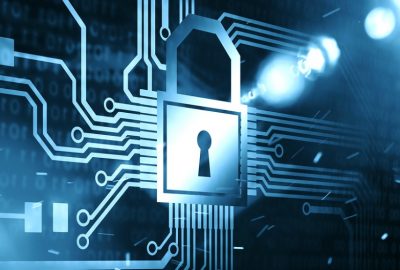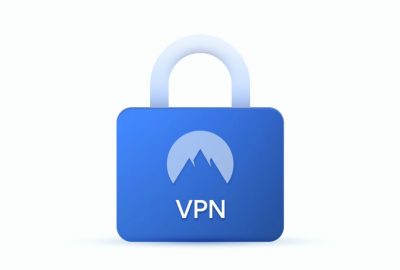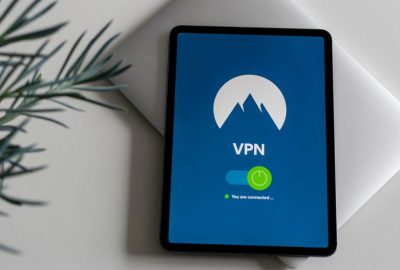 Due to the global emergency we are currently experiencing, the number of employees working remotely has increased. COVID-19 (coronavirus) is forcing more and more people to stay home. Thus, remote work becomes essential but generates new gaps in company security. As a result, the use of VPN (Virtual Private Network) has expanded in recent days. However, many questions arise on this topic: Are VPNs the most secure way for remote work? Is there an alternative?
Due to the global emergency we are currently experiencing, the number of employees working remotely has increased. COVID-19 (coronavirus) is forcing more and more people to stay home. Thus, remote work becomes essential but generates new gaps in company security. As a result, the use of VPN (Virtual Private Network) has expanded in recent days. However, many questions arise on this topic: Are VPNs the most secure way for remote work? Is there an alternative?
Remote work can bring certain risks to digital security
Converting your normal work environment to a remote environment is always a security risk. These new work practices need particular measures and risk management strategies that requires time. Yet, the Covid-19 does not allow us to afford that luxury. The scale and speed of this change may be incredible for your company. There may be risks or gaps that you are not evaluating because everything is happening to fast. Plus, it’s not just about relaxing some rules or email policies. Setting up your remote security is something that goes much further.
Another problem lies in the public nature of the matter. We are all aware of the current increase in remote access, including attackers. Many layers of security that currently exist do not apply to remote workers. Employees who take computers home expose themselves when switching to home networks. Without the Internet proxy, NAC, IDS, and NGFW, they expose their devices; This results in unsafe networks and compromised devices.
You could even compromise the security of your internal network. Your employees may need remote access to resources that are in a physical location. If remote access to these files is not protected, the door opens for the spread of malware. It may also be necessary to disable client certificate authentications. Although this protects web services, disabling it allows safe BYOD for your employees. Those are big cahllenges.
What is a VPN, and why is its use increasing?
 A Virtual Private Network is a software that creates an exclusive network from a public one. This allows users to send and receive data or share it securely. This occurs because the VPN acts as if your devices are directly connected to a private network. Thus, devices connected by VPN run their apps with the functionality and security of particular networks.
A Virtual Private Network is a software that creates an exclusive network from a public one. This allows users to send and receive data or share it securely. This occurs because the VPN acts as if your devices are directly connected to a private network. Thus, devices connected by VPN run their apps with the functionality and security of particular networks.
With the fear that cyberattacks will increase, several governments have promoted the use of a VPN. They encourage individuals and businesses to work with remote access. Right now, these kinds of measures become mandatory.
VPN limitations for remote access
Some performance issues can occur while using a VPN for remote access work. Because the private connection works by connecting your network to another server. This connection occurs before you access the website and can create performance problems. Some VPNs may take longer to contact private servers. This extends loading time and, in fact, this is a common disadvantage with free VPNs. Even the connection speed can be slower than when using a regular connection.
For individual users, a VPN can be easy to configure. Yet, for commercial users, VPNs are more complicated to put in place. Especially if you need to configure the private network to your physical headquarters. This makes your network connection more complex and affects every device in your business. Many VPN companies can simplify this, but they need a dedicated team to check the network.
Privileged Remote Access Management (PAM); the alternative to a VPN
 An alternative to VPNs is Privileged Access Management (or PAM) software solutions. They not only give you full control over advanced users; they help you detect threats, and attack suspicious activity in every session. Besides, they are responsible for modifying and granting access credentials centrally. Also, they prevent the misuse of software and hardware by limiting credentials and rotating SSH Keys.
An alternative to VPNs is Privileged Access Management (or PAM) software solutions. They not only give you full control over advanced users; they help you detect threats, and attack suspicious activity in every session. Besides, they are responsible for modifying and granting access credentials centrally. Also, they prevent the misuse of software and hardware by limiting credentials and rotating SSH Keys.
These solutions allow the detection of vulnerabilities through context analysis and pattern identification.
With a PAM, you can grant permissions to external collaborators even if you are using a VPN. At the same time, you can integrate the access control API to other security software. This makes it difficult for attackers to break into a network and gain access to the account.
The monitoring capabilities of PAMs are greater than in a conventional private network. This is because your organization can see who has access to what, and what are they doing. This makes it easier to filter out suspicious actions. Therefore, providing more intel about the use of administrative accounts.
BeyondTrust Privileged Remote Access
 BeyondTrust the world leader in Privileged Access Management, made an announcement recently related to the COVID-19 crisis. It’s about an enhancement to the automation, usability, and reporting of BeyondTrust PRA. This solution provides third parties and administrators with secure access to critical systems.
BeyondTrust the world leader in Privileged Access Management, made an announcement recently related to the COVID-19 crisis. It’s about an enhancement to the automation, usability, and reporting of BeyondTrust PRA. This solution provides third parties and administrators with secure access to critical systems.
The latest version automatically creates secure remote access paths to new IT assets. In addition, they offer a wide-open configuration API. It allows a reduction in manual administration and increases the efficiency of your company.
If you want to know more about BeyondTrust Privileged Remote Access, contact us. In these times of change, at GB Advisors we keep working hard to offer you the solutions you need; to improve the performance of your company. We strive to give you the IT environment you deserve, in the most efficient way.



